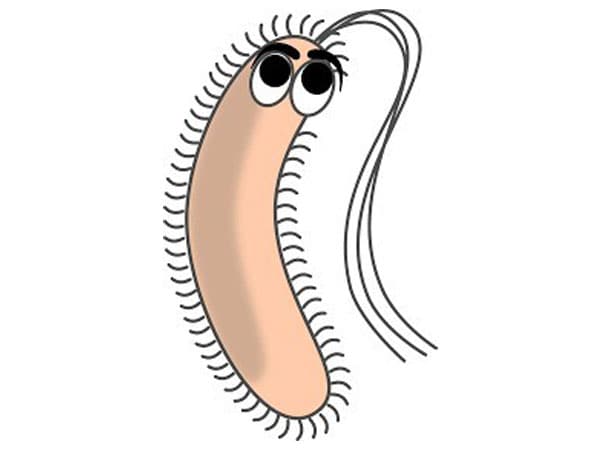Washington: The epidemic of food allergy is caused by the absence of certain beneficial bacteria in the human gut, researchers suggest.
“The loss of these bacteria acts as a switch that makes children susceptible to food allergy,” the recent study suggests.
For reasons that remain a mystery, the number of Americans who suffer from food allergy has risen sharply over the last decade to as many 32 million, according to one recent estimate. Nearly 8 percent of children in the U.S. — about two in every classroom — are affected.
One hypothesis is that certain Western lifestyle factors — an increase in births by Caesarean section, a decline in breastfeeding, increased use of antibiotics and smaller family sizes, for example — is disrupting the normal microbial balance in the gut, depriving babies of the “good” bacteria that prepare the immune system to recognize food as harmless.
As part of the study, published in the Journal of Nature Medicine, the researchers began testing this hypothesis by studying gut bacteria in babies with and without food allergies.
The team collected stool samples from 56 food-allergic patients and 98 matched controls. Gerber and his colleagues at Brigham and Women’s Hospital analyzed those samples for changes in bacterial content. The work revealed that the bacteria in the feces of babies with food allergies were different from those of controls. But did those bacterial differences play a role in their food allergies?
To find out, the team transplanted fecal bacteria from the babies into a special strain of allergy-prone mice. They fed the mice small doses of chicken egg protein to sensitize their immune systems to this allergen, then challenged the mice with a large dose.
The results: Mice that had been given fecal bacteria from food-allergic babies went into the life-threatening reaction called anaphylaxis. “The fecal bacteria from food-allergic subjects did not protect against food allergy, whereas the bacteria from control subjects did,” Chatila says.
“If you give them the right bacteria, the Clostridia, they’re completely resistant to food allergy,” said Talal Chatila, MD, director of the Food Allergy Program at Boston Children’s and a senior author on the paper.
Chatila believes the study proves that the loss of protective gut bacteria is a critical factor in food allergy.
“At the very least it is a fundamental mechanism. And more likely, in my mind, it is the fundamental mechanism on which other things can be layered,” he said.
While previous studies have suggested that certain bacteria can protect against food allergies, Chatila and his colleagues go a step further, describing the specific immunological pathway by which the bacteria act in mice. It begins with a protein, known as MyD88, that serves as a “microbial sensor” in the immune system’s regulatory T cells.
“You need the bacteria to give particular signals that are picked up by nascent regulatory T cells in the gut,” Chatila explains.
Those signals trigger a chain reaction that changes the gut regulatory T cells into a specific type, known as ROR-gamma regulatory T cells, that protect against food allergies.
The team of researchers believe their findings will eventually lead to new treatments that prevent the development of food allergies in newborns at risk. The treatments might take the form of probiotics — mixes of beneficial bacteria — or drugs that prime the immune system in the same way.
[source_without_link]ANI[/source_without_link]

